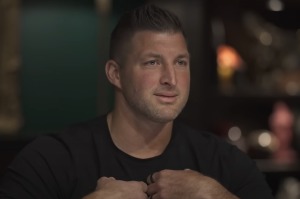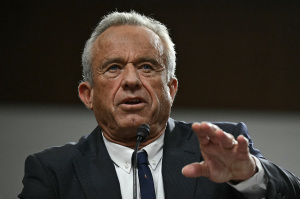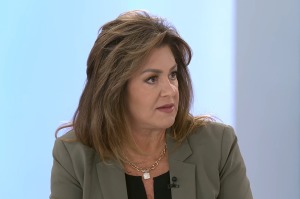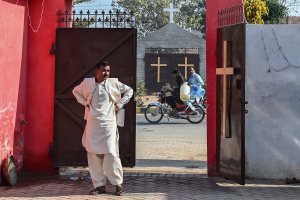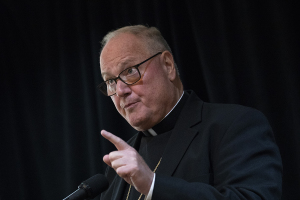International Criminal Court prosecutor: Violence in Nigeria merits an ICC investigation
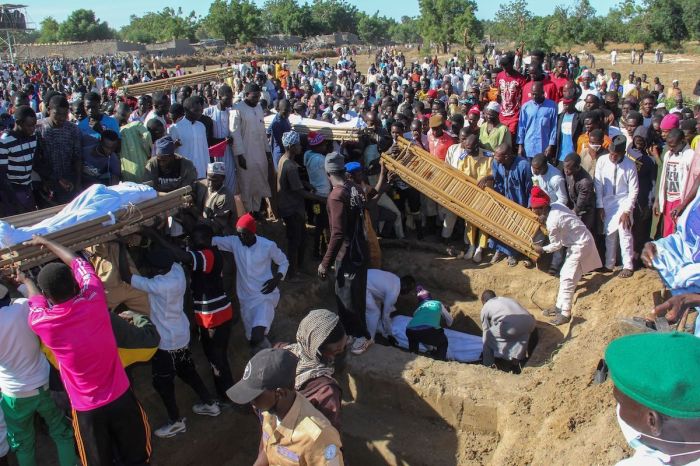
International Criminal Court prosecutor Fatou Bensouda recently announced that enough evidence of crimes against humanity exist in Nigeria to meet the criteria for opening an investigation.
Bensouda’s preliminary investigation accused both Islamist terrorist groups and the Nigerian military of crimes against humanity. The lists of offenses are extensive.
“Specifically, my Office has concluded that there is a reasonable basis to believe that members of Boko Haram and its splinter groups have committed the following acts constituting crimes against humanity and war crimes: murder; rape, sexual slavery, including forced pregnancy and forced marriage; enslavement; torture; cruel treatment; outrages upon personal dignity; taking of hostages; intentionally directing attacks against the civilian population or against individual civilians not taking direct part in hostilities; intentionally directing attacks against personnel, installations, material, units or vehicles involved in a humanitarian assistance; intentionally directing attacks against buildings dedicated to education and to places of worship and similar institutions; conscripting and enlisting children under the age of fifteen years into armed groups and using them to participate actively in hostilities; persecution on gender and religious grounds; and other inhumane acts.
“While my Office recognises that the vast majority of criminality within the situation is attributable to non-state actors, we have also found a reasonable basis to believe that members of the Nigerian Security Forces (NSF) have committed the following acts constituting crimes against humanity and war crimes: murder, rape, torture, and cruel treatment; enforced disappearance; forcible transfer of population; outrages upon personal dignity; intentionally directing attacks against the civilian population as such and against individual civilians not taking direct part in hostilities; unlawful imprisonment; conscripting and enlisting children under the age of fifteen years into armed forces and using them to participate actively in hostilities; persecution on gender and political grounds; and other inhumane acts,” Bensouda wrote in the Dec. 11 announcement.
Nigeria made some efforts to end the violence, she said in the report. However, its work failed to bring justice in the cases that merit the International Criminal Court’s interests.
“None of these proceedings relate, even indirectly, to the forms of conduct or categories of persons that would likely form the focus of my investigations. And while this does not foreclose the possibility for the authorities to conduct relevant and genuine proceedings, it does mean that, as things stand, the requirements under the Statute are met for my Office to proceed.”
Among the crimes are ongoing attacks against Christians. Since 2009, over 34,400 Christians have been murdered by various Islamist terrorist groups, according to Nigerian reports. The Nigerian government has failed to intervene and stop the violence, human rights groups have said.
Experts differ significantly over the exact cause of the violence in Nigeria, who commits it and why the government lets it continue. In a hearing last week on Nigeria by the United States Human Rights Commission, experts from Nigeria and around the world spoke on the killing and how to end it.
Speakers at the hearing traced the violence to several potential root causes. Mass killings in Nigeria could come from a general state of lawlessness in the nation, land disputes that merge with cultural and religious conflicts, or an attempt by radical Muslims to wipe out Christians. Nigeria’s government doesn’t intervene to stop the violence either because it is too weak or because its Muslim president, Muhammadu Buhari, supports Muslims killing Christians, they stated.
“The Middle Belt of Nigeria is a victim of bad government. The situation is much more complex than violence against a religious group or violence between religious groups,” said Nigerian hearing participant Udo Jude Ilo, director of Open Society Initiative for West Africa. “There is a growing banditry in the region which has crippled security.”
Because of climate change and desertification, an influx of northern Muslim cattle herders entered farmland belonging to southern Christian farmers, Ilo said. When conflicts arise over resources and cattle grazing on farmland, police don’t solve them and people take matters into their own hands. Sometimes, the conflicts have a religious element.
“Over the years, [Nigerian] politicians across the aisle have consistently used religion and ethnicity as a tool of mobilization for political power,” he said.
Other Nigerians have a different take on the killings. Nigerian Christian priest Father Clement Apeior said during the hearing that attacks in the Middle Belt are planned genocidal pogroms designed to destroy the Church in Nigeria. Muslim perpetrators disguise their actions to avoid international attention.
“The targeted victims give a clear index of the religious connotations of this carnage. It appears that the system has not only permitted but also aided the implementation of supremacist views of one religious group against the others,” Apeior said, referring to radical Islam. “The mass slaughter of Christians in Nigeria’s Middle Belt by every standard meets the criteria of a calculated genocide.”
The lack of government action in response to thousands of murders indicates a conspiracy of complicity by Nigeria’s president, he argued. The killings are so consistent and on such a large scale that the government must know.
The reason for the killings matters less than taking action to stop them, said hearing attendee Mike Jobbins. He works as the vice president of the Search for Common Ground peace group, which works to end conflicts in Nigeria.
“A priest who’s shot dead in his church, was it a robbery? Was it because he was a priest? Was it because he’s a community leader? Arresting the perpetrators and stopping the violence is the only way to ensure accountability and assure that we’re addressing the driver in any particular case,” he said. “It’s impossible to document the motivations of every single killer because the justice system has been lamentably unable to bring these killers to account.”
The hearing’s co-chair, Rep. Christopher Smith, R-N.J., called for the United States to impose 18 sanctions on Nigeria to pressure it to stop the violence. The sanctions must be passed or they will be only empty threats, he said.
“Our hope is to this and any subsequent administration that [the sanctions] will be used. There’s no reason to wait. It needs to be used. Delaying is denial,” said Smith.

















